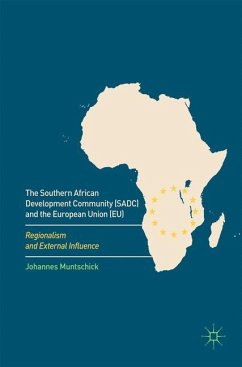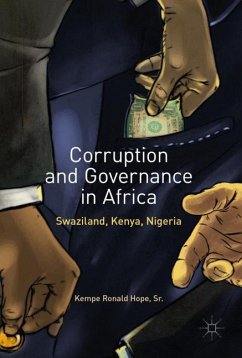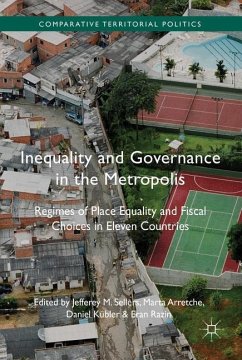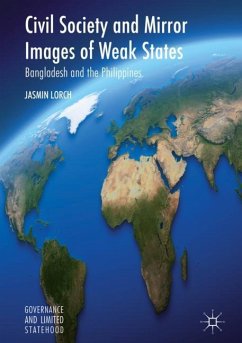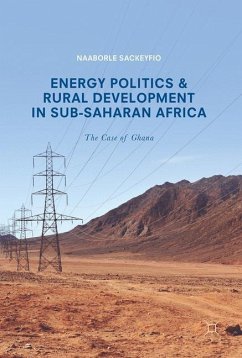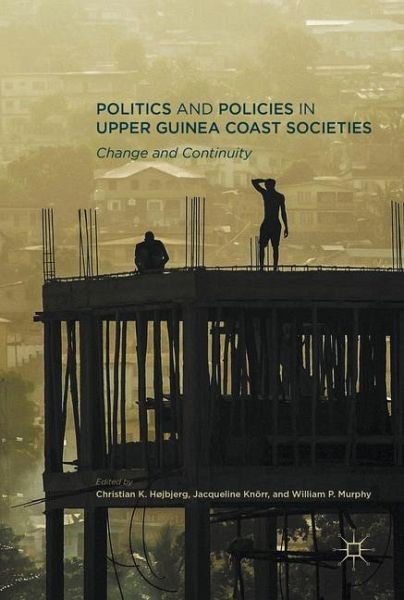
Politics and Policies in Upper Guinea Coast Societies
Change and Continuity
Herausgegeben: Højbjerg, Christian K.; Knörr, Jacqueline; Murphy, William P.

PAYBACK Punkte
46 °P sammeln!
This book examines the radical changes in social and political landscape of the Upper Guinea Coast region over the past 30 years as a result of civil wars, post-war interventions by international, humanitarian agencies and peacekeeping missions, as well as a regional public health crisis (Ebola epidemic). The emphasis on 'crises' in this book draws attention to the intense socio-transformations in the region over the last three decades. Contemporary crises and changes in the region provoke a challenge to accepted ways of understanding and imagining socio-political life in the region - whether ...
This book examines the radical changes in social and political landscape of the Upper Guinea Coast region over the past 30 years as a result of civil wars, post-war interventions by international, humanitarian agencies and peacekeeping missions, as well as a regional public health crisis (Ebola epidemic). The emphasis on 'crises' in this book draws attention to the intense socio-transformations in the region over the last three decades. Contemporary crises and changes in the region provoke a challenge to accepted ways of understanding and imagining socio-political life in the region - whether at the level of subnational and national communities, or international and regional structures of interest, such as refugees, weapon trafficking, cross-border military incursions, regional security, and transnational epidemics. This book explores and transcends the central explanatory tropes that have oriented research on the region and re-evaluate them in the light of the contemporary structural dynamics of crises, changes and continuities.
This book examines the radical changes in social and political landscape of the Upper Guinea Coast region over the past 30 years as a result of civil wars, post-war interventions by international, humanitarian agencies and peacekeeping missions, as well as a regional public health crisis (Ebola epidemic). The emphasis on 'crises' in this book draws attention to the intense socio-transformations in the region over the last three decades. Contemporary crises and changes in the region provoke a challenge to accepted ways of understanding and imagining socio-political life in the region - whether at the level of subnational and national communities, or international and regional structures of interest, such as refugees, weapon trafficking, cross-border military incursions, regional security, and transnational epidemics. This book explores and transcends the central explanatory tropes that have oriented research on the region and re-evaluates them in the light of the contemporary structural dynamics of crises, changes and continuities.
This book examines the radical changes in social and political landscape of the Upper Guinea Coast region over the past 30 years as a result of civil wars, post-war interventions by international, humanitarian agencies and peacekeeping missions, as well as a regional public health crisis (Ebola epidemic). The emphasis on 'crises' in this book draws attention to the intense socio-transformations in the region over the last three decades. Contemporary crises and changes in the region provoke a challenge to accepted ways of understanding and imagining socio-political life in the region - whether at the level of subnational and national communities, or international and regional structures of interest, such as refugees, weapon trafficking, cross-border military incursions, regional security, and transnational epidemics. This book explores and transcends the central explanatory tropes that have oriented research on the region and re-evaluates them in the light of the contemporary structural dynamics of crises, changes and continuities.





